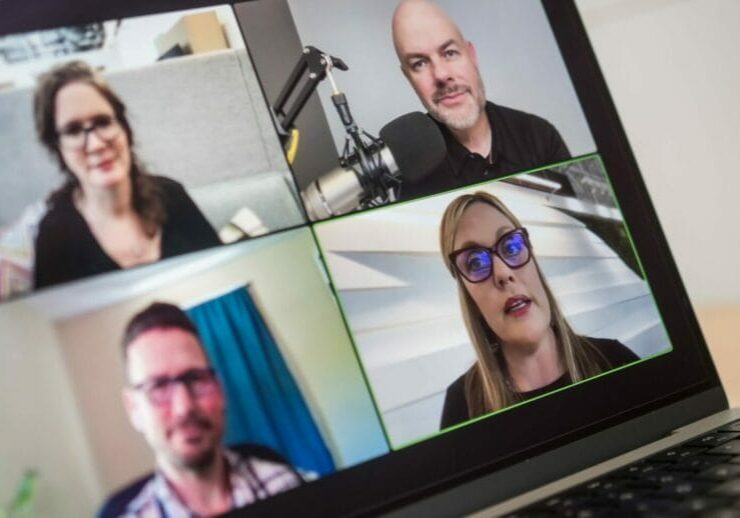The Silent Career Risk: Are You Neglecting Your Relationship Investments?

The Risk of Ignoring Relationships
Smart investments are critical to achieving growth. Whether you’re an individual, team, or organization, the investments you choose to make directly impact your success.
Typically, we think of these investments in terms of education, time, and money. Unfortunately, one investment that doesn’t get the same attention (but should) is relationships.
Even if we would verbally agree relationships are important, we don’t always follow that up with action. When work gets busy or the bottom line gets threatened, we tend to focus on the what of business at the expense of the who; forgetting that it’s the who that makes the how of business happen.
And while neglecting relationships in the day-to-day crunch of work may seem like a minor risk, it can have serious consequences in the long run. We start thinking of each other as automatons instead of people, and that does NOT end well (just ask the Stepford Wives).
So What’s the Big Deal With Relationships?
At SkyeTeam, we’ve worked with countless leaders, teams, and organizations for more than sixteen years. In that time, we have consistently seen that one of the most important indicators of individual, team, and organizational success is the strength of their relationships.
When your workplace is filled with people who have friends at work, it positively affects every level of the organization. There’s greater productivity (21%), safety (36% fewer incidents), and retention (12% less likely to leave).
And while we don’t have statistics on how much the fun level increases, we estimate it’s somewhere between an unplanned dance party and a deep belly laugh. Work becomes lighter, and we may find ourselves actually enjoying it (gasp)!
We’re such big believers in the power of workplace friendships, or ally relationships as we call them, we decided to write a book about it, You, Me, We: Why We All Need a Friend at Work (and How To Show Up As One!).
As we researched for the book, we became even more convinced that if leaders don’t intentionally and consciously choose to show up as a friend (what we call having an Ally MindsetTM), they risk far more than just goodwill.
If you aren’t making friends at work, you’re risking your career, your team, and even your organization.
Investing in Your Career Starts with Investing in Relationships
Most of your job as a leader revolves around people. You may be technically great at work, but if you aren’t able to engage others well, you’ll struggle to succeed.
It turns out that helping others be successful can actually make you successful.
Back in the day (literally, we’re talking 1918), Stanford Research Center, Harvard University, and the Carnegie Foundation found that a whopping 85% of job success comes from excellent soft and people skills. Only 15% comes from technical skills.
Not much has changed in the last 100 years (about people, at least, the internet is definitely new). According to the 2019 LinkedIn global talent report, 89% of hiring managers say that when a new hire doesn’t work out, it comes down to a lack of soft skills..
In other words, if you can’t play nice, you’re not going to play for long.
We’ve seen this happen way too often. A brilliant, talented individual gets promoted to a leadership position, where they promptly get dubbed a triple-A leader: an arrogant, aggressive asshole.
Or they struggle to speak with candor and honesty and get steamrolled, slowly becoming less and less effective and more and more resentful.
Their lack of ally relationships affects their ability to lead and their ability to grow their leadership skills.
Conversely, when you cultivate strong work friendships, you’ll have supporters in your corner who will tell you when you’re being a jerk, encourage you to have tough conversations, and cheer you on to success.
And if you find yourself looking for a job, there’s nothing like a network of allies to help you find the right fit.
Your career is always safer with allies who have your back.
Relationships Put the “Team” in “Teamwork”
If you’ve never heard the saying, “Teamwork makes the dream work,” then we can only assume you’ve been in hibernation for the last 20 years.
It’s one of those trite, cliche sayings that persists because, well, it’s true. But if you read the full quote by the original author, John Maxwell, you’ll see there’s a twist to this aspirational, feel-good sentiment.
The complete statement is, “Teamwork makes the dream work, but a vision becomes a nightmare when the leader has a big dream and a bad team.” It doesn’t quite have the same warm, fuzzy feeling, does it?
When Maxwell references a “bad” team, he’s not talking about morality; he’s talking about functionality. If you’re trying to achieve results, a bad team can be a big problem.
So what makes a bad team?
It’s not the individuals making up the team but the relationships between them. You can have a room full of amazing people, but if they aren’t working together, you’ll see more arguments than achievements.
In short, bad relationships make for a bad team. (Sensing a theme?)

If you’re the leader of a team, having an Ally MindsetTM is critical to your team’s success. Your team needs the kind of relationships that build trust and create genuine psychological safety.
You can explore your personal Ally Mindset Profile here: skyeteam.cloud/youmewe
When your team members truly trust each other – to support each other, speak honestly, and care for each other- they will feel empowered to take informed risks, innovate creatively, and speak up when they see signs of impending disaster.
When they don’t trust each other, they’ll spend too much time pulling against each other instead of with each other and miss out on achieving their objectives, no matter how brilliant they are individually.
The same goes for an organization, but exponentially so.
Poor Relationships Are Risky Business (Tom Cruise Not Included)
Playing it safe isn’t an organizational value any of our clients ascribe. They know taking risks is a necessary part of business. But some risks carry no promise of return.
The risk your organization faces by not investing in relationships is one of those. There is absolutely no benefit to neglecting the human factor.
Show us a company that doesn’t nurture quality relationships and we will show you a dysfunctional culture filled with toxic politics, information silos, and unproductive turf wars between divisions and teams.
Not exactly a recipe for creativity and innovation.
Worse still, as relationships stagnate (or get downright hostile), vision and alignment across teams become more like a pipe dream than a possibility. Mistrust perpetuates, your people isolate, and the bottom line suffers.
Without a culture forged by strong ally relationships, you won’t see the results you aspire to achieve, and your best and brightest will begin eyeing the exit.
As we like to say often, business is personal, relationships matter, and we are #bettertogether.
The ROI of Relationships
If you’re feeling overwhelmed by the importance of relationships, then good – go invest in some! But if you feel overwhelmed by the work of building relationships, then please don’t be.
The ROI on relationships is even more impressive because you don’t have to take on a lot of extra work to invest in them; you just have to change how you show up in the work you’re already doing.
Relationships are a long game. They take consistency in the small things, not grand flash-bang gestures. You can start with something as simple as a check-in to see how someone is doing as opposed to what they are doing. (For more ideas, check out our book You, Me, We.)
And you don’t have to get it right all the time. Having an Ally MindsetTM is about progress, not perfection. You don’t have to be Mother Teresa to be someone’s best friend; you just have to avoid being a Stepford Wife.
The goal is simply to bring your human side to work and be the kind of work friend to others you would want to have.
When others see your genuine, consistent support for them and their success, they’ll begin to trust and connect with you in unexpected (dare we say, beautiful) ways that can revolutionize how your career, team, and organization succeed.
The investment in relationships will always pay off in mutual success because we are always #bettertogether.

Let's Connect





